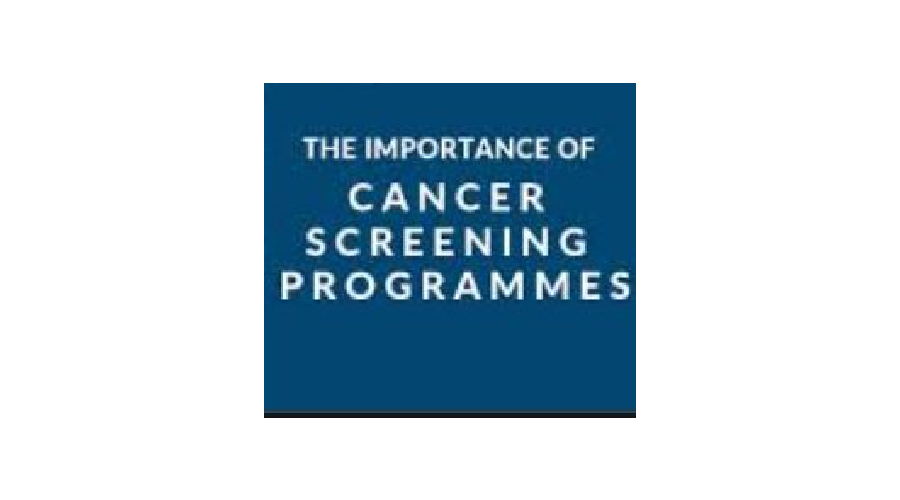25 August 2022
Dr. Michael Daignault, USA TODAY
I share with readers today the following article in support of what I see as evidence pointing to regular screening for cancer and further support to my cause for regular screening programs in the Solomon Islands as an essential part of the overall health services, but services that are still not available to Solomon Islands citizens.
Daily COVID-19 cases in the U.S. from the BA.5 wave are slowly declining, as are emergency room visits and hospitalizations for severe COVID-19 illness. The CDC’s new guidance for minimizing the impact of COVID-19 reflects a push to move on from the emergency phase of the pandemic. Patient volumes in the emergency room have returned to and exceeded pre-pandemic levels.
Unfortunately, far too many of my emergency room patients of late are being diagnosed with cancer or progression of their tumors. These patients are suffering collateral damage from the pandemic; they are upwards of two years behind in their critical disease screening appointments or have been unable to follow up as their primary care doctor offices face a daunting scheduling backlog.
Lung cancer: Increased screenings and decreased smokers reduce deaths
More people die of lung cancer in the U.S. than from any other cancer. Approximately 154,000 Americans died of lung cancer in 2018. Fortunately, the number of deaths from lung cancer appears to be on the decline. This is likely due to:
1. A decline in the number of adult American smokers from 20.9% (21 of every 100 adults) to 12.5% (13 of every 100 adults) by 2020
2. Increased lung cancer screening
For adults aged 50 to 80 years old who have a 20 pack per year smoking history and currently smoke or have quit within the past 15 years, the USPSTF recommends annual low-dose computed tomography, which is specifically used for lung cancer screening. This annual CT should be discontinued only once a person has not smoked for 15 years, has limited life expectancy or does not want or cannot have curative lung surgery.
Colorectal cancer: Screening now starts at age 45
The tragic death of "Black Panther" star Chadwick Boseman from stage IV colon cancer in 2020 was a wake-up call for many Americans who had never been screened for this fast-growing disease. Colorectal cancer is the third most common cancer in the U.S. The American Cancer Society estimates that it will cause about 52,000 deaths in 2022.
As with lung cancer, the death rate from colorectal cancer has been dropping due to better screening and removal of pre-cancerous polyps and treatment options.
The USPSTF made a significant update in May 2021 that may have been missed by both physicians and patients. Due to the rising incidence of colorectal cancer among young adults, the age to start screening was lowered from 50 to 45 years old.
Physicians can screen their patients with average risk (without familial or genetic high-risk factors) with a variety of strategies including (but not limited to):
· Annual fecal blood test
· CT of the colon every 5 years
· Colonoscopy every 10 years
· Flexible sigmoidoscopy every 5 years
Breast cancer: Guidelines lack consistency
Recommendations on breast cancer screening for women of average risk are unfortunately not consistent and may be a source of confusion for patients.
American Cancer Society guidelines for women of average risk for breast cancer:
· Age 40 to 44: Can start annual mammogram screening
· Age 45 to 54: Recommended annual mammogram
· Age 55-plus: Annual or biennial (every other year) screening
USPSTF 2016 guidelines are currently being revised and the organization has expressed concern that beginning mammography screening for those younger than 50 years may increase the risk for overdiagnosis and subsequent overtreatment. USPSTF currently recommends biennial screening for women 50 to 74 years.
Of critical note, recent surveys of over 600 breast cancer centers found that 80% of them recommend screening mammogram at a starting age at odds with current USPSTF guidelines.
Breast cancer can affect men, too. Approximately 1 of every 100 people diagnosed with breast cancer in the U.S. is a man – meaning the risk is small, but far from zero. About 2,300 men will be diagnosed every year, and 500 will die.
Footnote.
Michael Daignault, MD, is a board-certified ER doctor in Los Angeles. He studied Global Health at Georgetown University and has a Medical Degree from Ben-Gurion University. He completed his residency training in emergency medicine at Lincoln Medical Center in the South Bronx. He is also a former United States Peace Corps Volunteer. Find him on Instagram @dr.daignault
This article originally appeared on USA TODAY:
Yours sincerely
Frank Short



